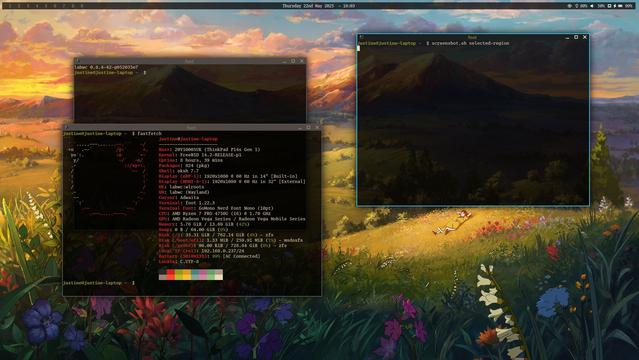Very nice background, but what a those options that were not yet available? I've been using xfce for years and the transparency and snapping has always been there.
I read about Wayland and several apps having problems with it. What is the big plus of Wayland?
Security, for one thing. With X, every app can read all your keystrokes, for example.
@jerry1970 @justine X is in maintenance mode and has been for years now, and most of the work being done is in aid of the xwayland compatibility layer. It's a very old codebase that's become difficult to work with and has structural security flaws (e.g. every application running in an x server can be a silent keylogger). Development has been focused on Wayland and the xwayland compatibility layer for some time, even RHEL 10 has officially dropped X11, it's not even available in the official repos.
Wayland is reaching an inflection point where most of it's usability issues (usually stemming from it's focus on security), have been solved with protocols and portals, and Wayland compositors and applications are adopting these features.
Over time depending on how much community support there is for the X server it will fall victim to bitrot and become increasingly broken on modern systems. Eventually popular toolkits and applications will cease to function anyway or require hacky workaround compatibility layers.
@jerry1970 @justine what compositor/WM/DE did you try? GNOME and KDE have by far the most mature Wayland experience, with hyprland and sway being the most mature standalone WMs (this is assuming Linux, no idea what Wayland is like in BSD land)
Hopefully soon we'll see more choice for mature wayland compositors!
Sorry for my lack of knowledge on this part, I am a software developer but that part has never been of interest to me. I think it's time I learn a little bit more so at least I understand the talk... ;)
@jerry1970 @justine I think there are some architectural advantages to Wayland, but the main thing in my mind is developer support for X.org is dwindling. It’s an old code base and it’s not easy to work on. It looks like there are still some people fixing security issues, but it’s sporadic. About three updates a year. https://x.org/wiki/Development/Security/
That’s probably okay now, but it will become increasingly less okay as time goes on.
